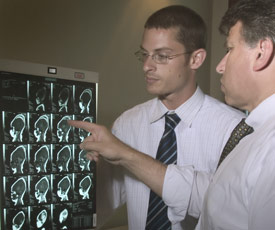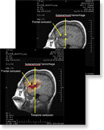Medical Malpractice and other Professional Malpractice
Advocating for Safe Medicine for our Families
Medical malpractice occurs when a patient is injured because a doctor or other health care professional fails to follow generally accepted standards of care.
A bad medical outcome alone is not enough to have a medical malpractice case. The doctor or other professional must have acted negligently, or must have failed to act where necessary, and the patient must have suffered a severe injury.
The great majority of Massachusetts doctors, nurses and other health care professionals are well trained, compassionate, and provide excellent care, but a small group of doctors and others are responsible for a large number of mistakes. Most of our clients are motivated by the desire to prevent other patients from being injured in the future. We have seen changes in hospital policies and procedures, and we have seen some truly bad actors leave medical practice, as a result of cases we have brought.
We work with the very best experts from major teaching hospitals and medical centers across the country to carefully review malpractice cases, advise us as we prepare your case, and provide expert testimony at trial.
While we often advise clients against litigation, when we do accept a case, we know that our client is fully justified in filing a lawsuit.
Medical Malpractice in Massachusetts
Malpractice may occur in the following contexts:
- Birth trauma from delayed Cesarean section, resulting in shoulder dystocia, hypoxic brain injury, cerebral palsy, developmental delays, cognitive difficulties, and physical handicaps
- Misidentifying the mother’s heart rate for the baby’s heartrate
- Obstetrical negligence resulting in injury to the mother
- Delayed diagnosis of cancer
- Surgical errors
- Contraindicated or unnecessary surgery
- Anesthesia errors
- Radiology mistakes in misreading x-rays, CT scans, MRIs and mammograms
- Pathology errors in misreading biopsies and surgical specimens
- Delays in treatment or improper treatment due to miscommunications between physicians
- Medication errors in prescribing, filling or administering medicines
- Infections resulting from poor sanitation or other lapses
- Administrative mistakes
Statute of Limitations
Generally, Massachusetts allows three years from the date of the malpractice to file a medical malpractice lawsuit, but the particular facts of your case may result in shorter or longer periods of time, and there may also be special notice requirements.
=Due to the time necessary to properly gather evidence, retain experts and investigate a case before filing suit, a patient should retain an attorney immediately upon suspecting malpractice.
How We Use Evidence to Win Medical Malpractice Cases
From the inception of a case, we consider the types of “demonstrative evidence” that will bring alive key pieces of evidence and help a jury understand your case:
- Medical calendars, story boards and timelines with the important dates when malpractice occurred
- Medical calendars summarizing our client’s medical treatment
- Charts explaining good medical practice and the dates when published standards took effect
- Case-specific medical illustrations showing pertinent anatomy, steps in a surgical procedure, or progression of a disease or illness
- Color enhanced CT scans, MRIs or x-rays that show our client’s injuries
- Animated fetal monitor strips with time markers for key points during labor
- Special photography that clarifies alterations in medical records
- Enlargements of microscopic images
In addition to our own inventory of anatomical models, we have model makers create case-specific anatomical models, such as models showing the progression of a tumor that had been missed by a doctor.
Results in Medical Malpractice Cases
We have over 20 years experience winning medical malpractice cases. We have collected millions of dollars for our clients over the years.
Other Professional Malpractice
Holding other Professionals Accountable
Like physicians and surgeons and other medical providers, other professionals must also follow generally accepted standards of practice. Lawyers, accountants, financial advisors, and others can also be held responsible for financial losses suffered by their clients when they depart from accepted standards in their fields or act without proper authorization.
We have helped many clients in such situations.

Learn How Evidence Wins Cases
A personal injury case can hinge on a single piece of evidence, one key witness, or a seemingly minor detail that is easily overlooked. Read More

